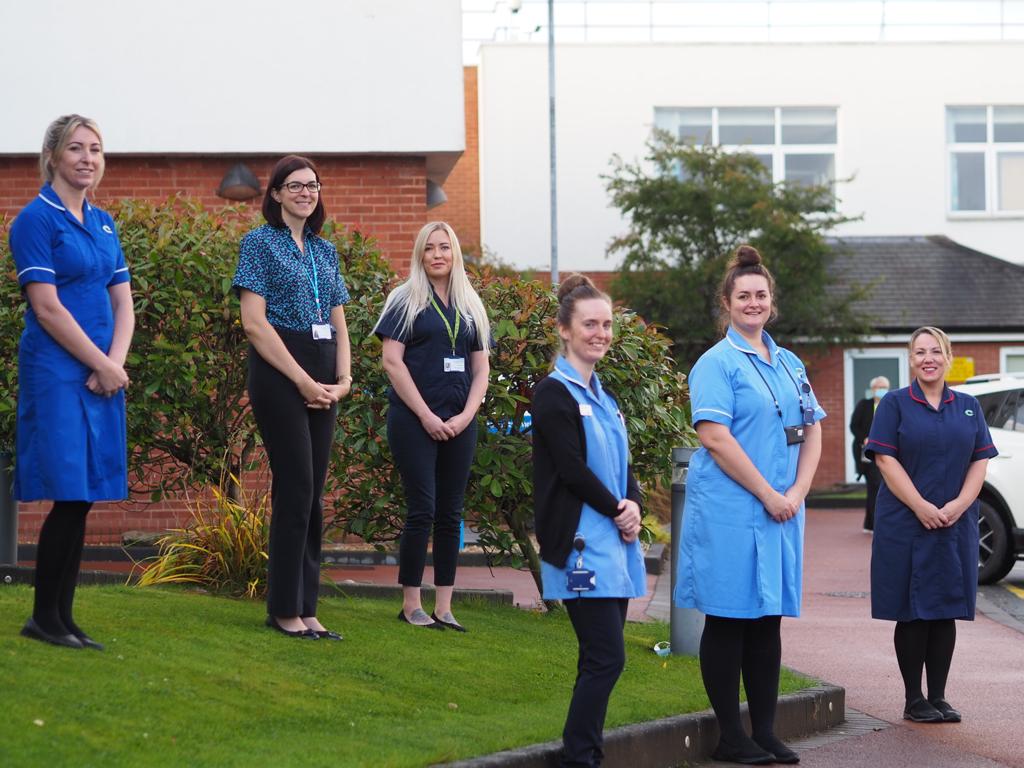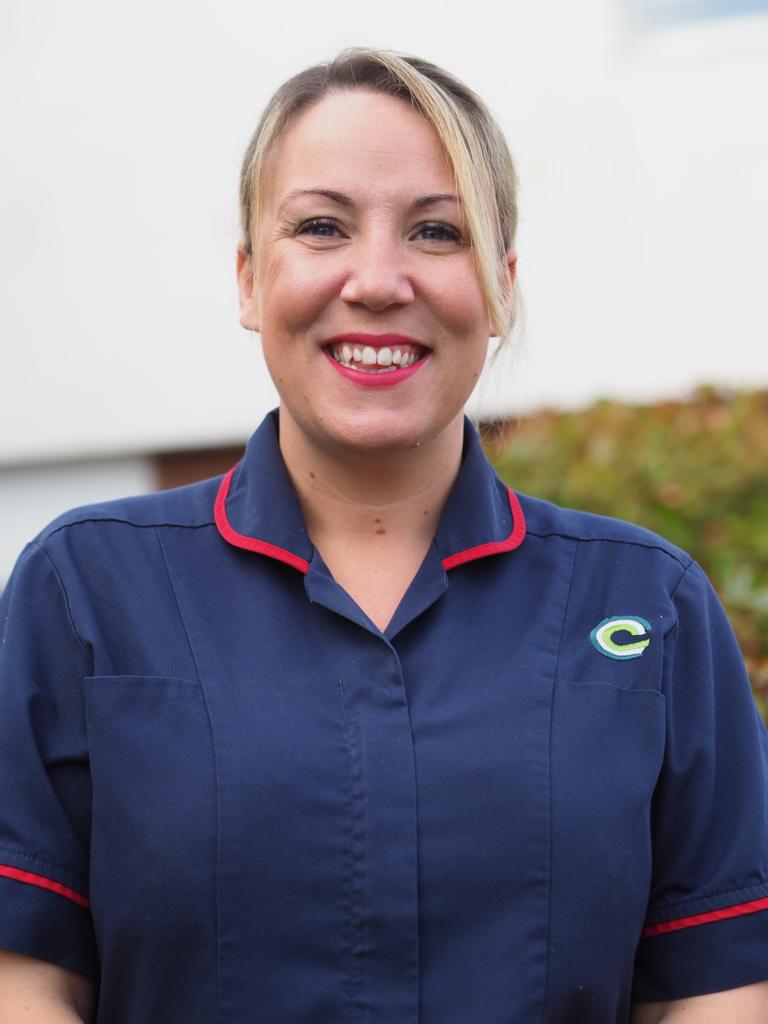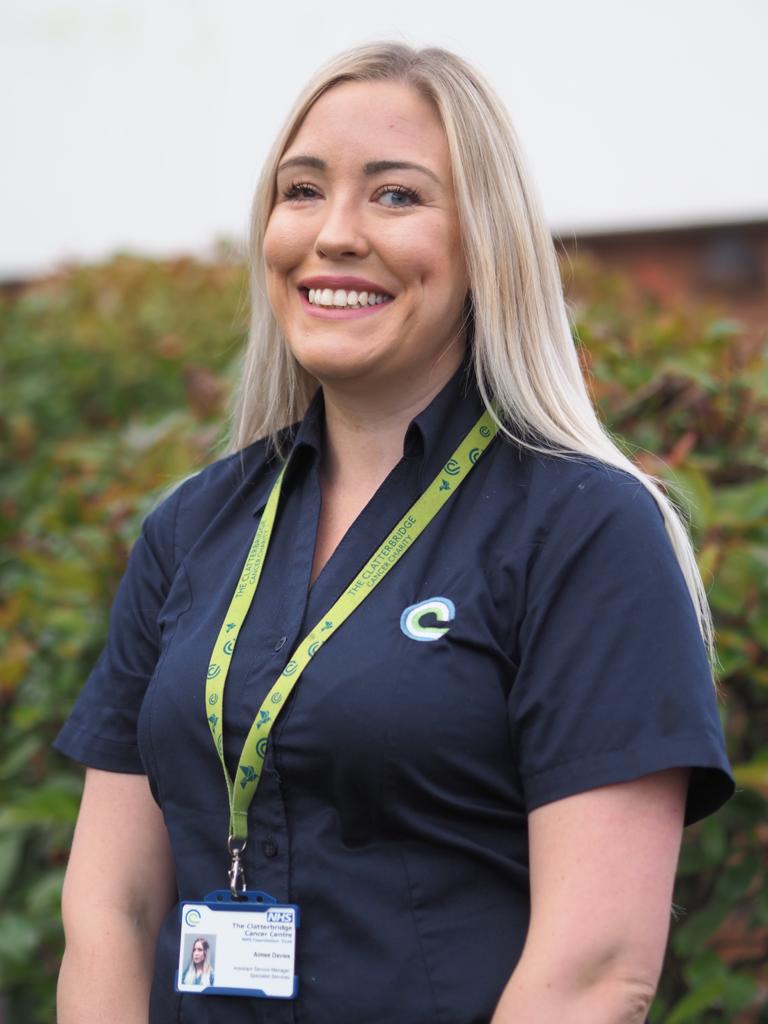Breast Cancer Awareness Week - Treatment at Home and Work
Posted 16th October 2020

The Clatterbridge Cancer Centre NHS Foundation Trust is one of the UK’s leading cancer centres, treating more than 30,000 patients each year with solid tumours and blood cancer.
Breast cancer is still one of the UK’s most common form of cancers and The Clatterbridge Cancer Centre sees hundreds patients diagnosed with some form of breast cancer, every month.
Breast cancer is commonly treated through chemotherapy, immunotherapy, radiotherapy and supportive therapies and the Clatterbridge Cancer Centre is proud to be able to offer eligible patients treatment for breast cancer, within their own homes or their work places.
The Treatment at Home service, delivered by the Clatterbridge in the Community team, was established in 2016 to provide patients diagnosed with breast cancer, and other forms of cancer including melanoma, the opportunity to be treated in their own homes.
In 2018, the service expanded to include Treatment at Work, offering those patients who want to continue to work the opportunity to receive their chemotherapy treatment in their workplace.
Treatment at Work was the first service of its kind in the UK, and was developed after a number of patients had to decline treatment at home as they were returning to work and needed to have specific times for their appointments.

Angela White is the Clatterbridge in the Community Service Manager and leads the team of nurses treating patients in their home or workplace. She said: “The aim of this service has always been to make patients’ treatment journeys as smooth as possible.
“Getting back to work is a really important part of the journey for many people with cancer and the team at Clatterbridge in the Community wanted to help them get back a sense of normality, whilst still receiving vital treatment in a safe and comfortable environment.”
Angela continued: “Treatment at home or at work is beneficial for patients in all sorts of ways. Many people rely on public transport, which for some patients can be costly and involve long journeys. Arranging treatment around work and family commitments can bring with it unnecessary stress for those living with cancer. And for many patients continuing to work is not only vital as a source of income, but to continue a sense of normality, to be mentally stimulated through work and to continue to enjoy important relationships with colleagues. It’s the same with hobbies – patients want to be able to continue to enjoy the things they love and feel normal and having treatment at home helps them do that.”

Aimee Davies is Assistant Service Manager for Clatterbridge in the Community and has been instrumental in setting up the service. On the process of implementing the service in patients’ workplaces, Aimee said: “We needed to have the full support of the patient’s workplace so we work in partnership with them from the very start of the process to ensure they are fully briefed and supportive.
“The response from patient’s employers has been 100 percent positive. They have all willingly made a suitable room available that can be adapted as a treatment room, meeting health and safety standards expected for chemotherapy interventions.
The team have worked closely with colleagues in the Trust’s Pharmacy team to identify what treatments could be offered to patients and what types of cancer the team are able to treat outside a hospital environment.
Helen Poulter-Clark is Chief Pharmacist at The Clatterbridge Cancer Centre NHS Foundation Trust. She said: “Being able to safely offer patients treatment outside hospital is one of our biggest success stories; not only for patients but for our staff as well. The fact that we’ve been able to do this using Clatterbridge Cancer Centre nurses and pharmacists, rather than a home care company, is fantastic.”
Since it was established, the feedback of the service has been overwhelmingly positive.
The feedback from patients has been overwhelmingly positive; in a survey carried out by the team in 2019, 100% of patients said they would recommend the service to others if it was an option to them. 100% of patients were either very satisfied or satisfied with the service and 100% of patients said they had confidence in the care that was provided to them.
Jo Shepherd is a HR Director for an NHS Trust and also a patient of The Clatterbridge Cancer Centre who has benefitted from the Treatment at Work service. Jo said: “My job is incredibly busy so when I was told about treatment at work I jumped at the opportunity. I simply take 20 minutes out of my diary so that I can have my treatment. The team are unbelievably flexible and do their utmost to work around my commitments. The service has been one of the best examples I’ve seen of putting the patient first.
“As a patient who is living with cancer it’s made a huge difference to me and my ability to get on with my life.”
The Clatterbridge in the Community Team have big plans for the future of the service, which has even seen them continuing to treat patients in their workplace throughout the pandemic. Clare Bennet, Matron of Chemotherapy at The Clatterbridge Cancer Centre, said: “The team have made huge strides over the past two years; setting up the service from scratch and supporting patients through the pandemic, which has been such a frightening time for many people living with cancer. But we certainly have more work to do.
“We want to set up a support group for patients wanting to return to work. There are more than 750,000 people of working age living with cancer in the UK and as many as 63,000 people with cancer today who want to work but are unable to do so. It is estimated that by 2030, an extra 130,000 people with cancer could return to work after treatment if they have the right support in place. We want to make sure we can offer this support to our patients here at The Clatterbridge Cancer Centre.”
For more information about The Clatterbridge Cancer Centre NHS Foundation Trust, follow @CCCNHS on social media.
If you are a patient and would like more information on this service and whether or not you are eligible to be treated at home, please speak to your medical team. Please be advised, only certain types of cancer and those receiving certain drugs will be eligible for the service at this time.
